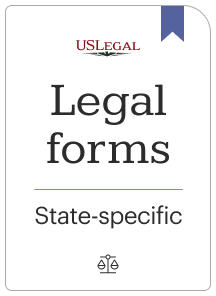

This form is a generic Bill of Sale for a Boat from an individual rather than from a dealer. No warranty is being made as to its condition.
A purchase and sale agreement for a boat is a legally binding document that outlines the terms and conditions of a transaction between a buyer and seller. This agreement ensures that both parties understand their rights and responsibilities throughout the boat purchase process. It is essential to have a detailed and comprehensive purchase and sale agreement to protect both parties' interests and prevent any potential disputes. Keywords: purchase and sale agreement, boat, transaction, buyer, seller, terms and conditions, legally binding, rights, responsibilities, purchase process, comprehensive, disputes. Different types of purchase and sale agreements for boats include: 1. New Boat Purchase and Sale Agreement: This type of agreement is used when buying a brand-new boat directly from a manufacturer or authorized dealer. It typically covers warranties, delivery terms, completion date, customization options, and any additional equipment included in the purchase. 2. Used Boat Purchase and Sale Agreement: When purchasing a pre-owned boat, this agreement includes provisions for the boat's condition, maintenance history, any known defects, and a thorough inspection of the vessel. It also addresses whether the sale is "as-is" or if any warranties are provided. 3. Yacht Purchase and Sale Agreement: Yachts are high-value vessels that often require more complex agreements. This type of agreement may include additional clauses for crew employment contracts, charter rights, flag registration, and financial arrangements. Yacht purchase agreements tend to be more detailed and may involve legal professionals to ensure all aspects are properly addressed. 4. Fractional Boat Ownership Agreement: When multiple individuals share ownership of a boat, a fractional boat ownership agreement is used. This agreement outlines the terms and responsibilities of each owner, scheduling usage, maintenance costs, and procedures for selling or transferring ownership shares. 5. Consignment Boat Purchase and Sale Agreement: When selling a boat through a consignment arrangement, this agreement allows a dealership or broker to handle the sale on behalf of the owner. It establishes the terms, commission, authority to negotiate, and responsibilities of both the owner and the consignee. Regardless of the type, a purchase and sale agreement for a boat should cover essential elements, including: — Identification details of the buyer and seller — Boat details (make, model, year, hull identification number) — Purchase price and payment term— - Deposit and refund policy — Sea trial and survecontingenciesie— - Seller's representations and warranties — Buyer's rights to inspect and reject the boat — Closing datallocationio— - State-specific clauses or requirements — Signatures of both parties. It is important for both buyers and sellers to review the purchase and sale agreement thoroughly before signing to ensure all terms are understood and agreed upon. Consulting with a maritime attorney or industry professional may be beneficial to ensure all legal obligations are met and to address any specific concerns or requirements.
A purchase and sale agreement for a boat is a legally binding document that outlines the terms and conditions of a transaction between a buyer and seller. This agreement ensures that both parties understand their rights and responsibilities throughout the boat purchase process. It is essential to have a detailed and comprehensive purchase and sale agreement to protect both parties' interests and prevent any potential disputes. Keywords: purchase and sale agreement, boat, transaction, buyer, seller, terms and conditions, legally binding, rights, responsibilities, purchase process, comprehensive, disputes. Different types of purchase and sale agreements for boats include: 1. New Boat Purchase and Sale Agreement: This type of agreement is used when buying a brand-new boat directly from a manufacturer or authorized dealer. It typically covers warranties, delivery terms, completion date, customization options, and any additional equipment included in the purchase. 2. Used Boat Purchase and Sale Agreement: When purchasing a pre-owned boat, this agreement includes provisions for the boat's condition, maintenance history, any known defects, and a thorough inspection of the vessel. It also addresses whether the sale is "as-is" or if any warranties are provided. 3. Yacht Purchase and Sale Agreement: Yachts are high-value vessels that often require more complex agreements. This type of agreement may include additional clauses for crew employment contracts, charter rights, flag registration, and financial arrangements. Yacht purchase agreements tend to be more detailed and may involve legal professionals to ensure all aspects are properly addressed. 4. Fractional Boat Ownership Agreement: When multiple individuals share ownership of a boat, a fractional boat ownership agreement is used. This agreement outlines the terms and responsibilities of each owner, scheduling usage, maintenance costs, and procedures for selling or transferring ownership shares. 5. Consignment Boat Purchase and Sale Agreement: When selling a boat through a consignment arrangement, this agreement allows a dealership or broker to handle the sale on behalf of the owner. It establishes the terms, commission, authority to negotiate, and responsibilities of both the owner and the consignee. Regardless of the type, a purchase and sale agreement for a boat should cover essential elements, including: — Identification details of the buyer and seller — Boat details (make, model, year, hull identification number) — Purchase price and payment term— - Deposit and refund policy — Sea trial and survecontingenciesie— - Seller's representations and warranties — Buyer's rights to inspect and reject the boat — Closing datallocationio— - State-specific clauses or requirements — Signatures of both parties. It is important for both buyers and sellers to review the purchase and sale agreement thoroughly before signing to ensure all terms are understood and agreed upon. Consulting with a maritime attorney or industry professional may be beneficial to ensure all legal obligations are met and to address any specific concerns or requirements.
Get rid of the headache that comes with your legal documentation. Explore the comprehensive US Legal Forms collection to find legal samples, examine their relevance to your circumstances, and download them on the spot.